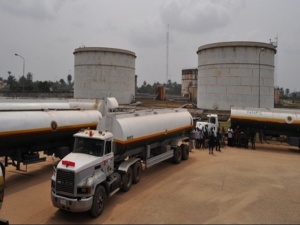ABOUT three weeks ago, Nigeria acknowledged a meritorious achievement of discovering crude oil in Borno State after several months of exploration activities. It seems to be good news for all.
 Ever since the country experienced a boom in the exploration of crude oil, the richly oil dominated Sub-Saharan Africa has consciously shifted its economic reliance from other sectors to primarily generate surplus foreign exchange revenue from oil extraction. This natural resource became solely responsible for 90 per cent of the nation’s foreign exchange earnings. That was how Nigeria gradually dived towards monoculture.
Ever since the country experienced a boom in the exploration of crude oil, the richly oil dominated Sub-Saharan Africa has consciously shifted its economic reliance from other sectors to primarily generate surplus foreign exchange revenue from oil extraction. This natural resource became solely responsible for 90 per cent of the nation’s foreign exchange earnings. That was how Nigeria gradually dived towards monoculture.
The standard of living of Nigerians increased following this oil boom in 1971 as the Gross Domestic Product per capita income skyrocketed. Nigeria joined the Oil Producing and Exporting Countries (OPEC) to become Africa’s largest producer of oil in the global market, selling principally to the United States. Industries, mostly foreign, hurriedly made a conducive environment out of the country because of these fortunes.
But this wealth didn’t stay with the country for too long. Oil boom attracted selfish individuals too keen on occupying political offices; caused the neglect of some other productive sectors like agriculture and mining; threw the country into jeopardy of environmental degradation; and generated civil unrest, among others.
As a result of the quick fortune that blew on the entire nation, agriculture, one of the major initial productive sectors, suffered the most. It was underfunded until it couldn’t match up with other sectors like telecommunication and mineral resources. Food and its supplementary products which were never supposed to be scarce commodities are now scarce and costly.
To the detriment of the masses, oil made political office attractive for corrupt individuals who not only looted public treasury to paralysis while in power but wielded that same power to remain unseated for too long a period as well. This lasted till countrymen and women clamoured for change in governance when the crude oil fall in price inflicted suffering unbearably. The political atmosphere tensed up and littered with godfatherism, murders, riggings and campaigning violence among other unhealthy attributes.
On periodic events, the Niger Delta agitated for empowerment in their own best language that often orchestrated civil unrest. Bloodshed and vandalism from these agitations continued to send a weakening signal to the economy. These militants did so because of the oil that left their regions less habitable in diverse ways.
For a recent and prevalent implication, reliance on oil in Nigeria caused recession. How? The largest of buyers of crude oil which is United States of America no longer demands for large quantities of it because of the substitute from biodiesel and ethanol. Asia emerged a crowded market for oil producing countries to sell, including Nigeria. The formula of many suppliers and little buyers resulted in the fall of price for crude oil globally.
The surplus earnings from crude oil are no longer feasible in Nigeria because of ethanol and biodiesel. Now, states run crusades for ‘Back to Land for Agriculture’ as practiced in Ekiti, Imo, Jigawa and some others, as a solace. Let’s allow oil to rest and channel our economy to other dormant sectors.
Gabriel Ogunjobi
Kindly follow us on twitter:@AfricanVoice2









